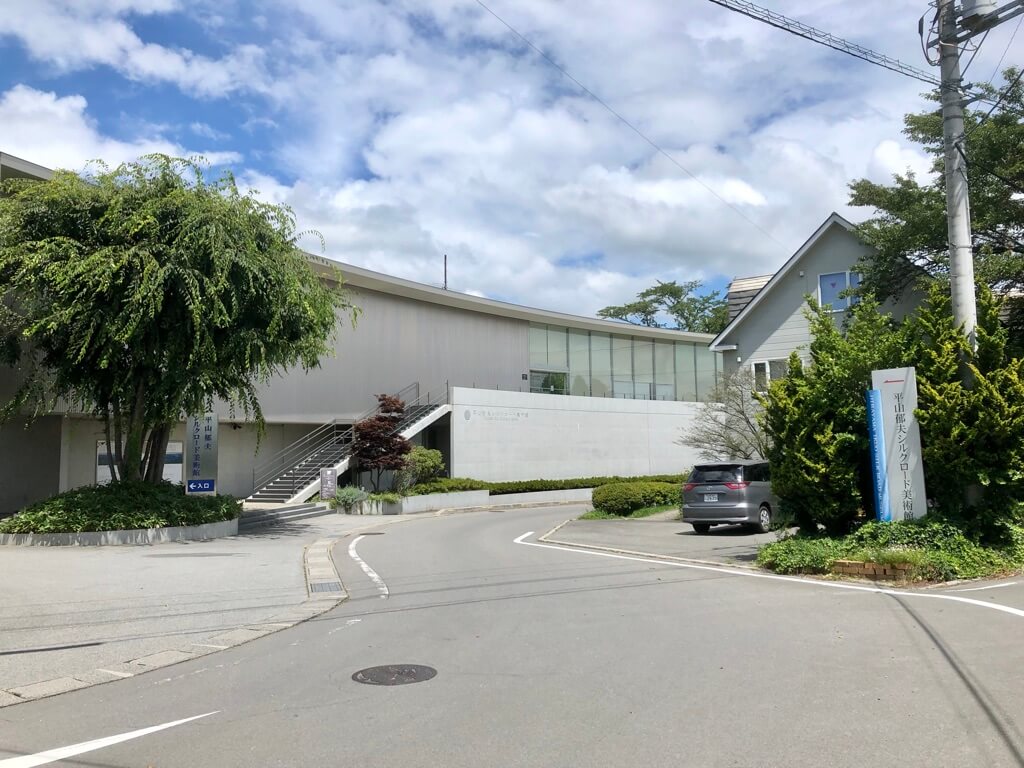平山郁夫シルクロード美術館

私が平山郁夫先生について語ることは出来ませんので、以下の紹介文はホームページからお借りしたものです。 平山郁夫は、1968年から日本文化の源流を求め、仏教伝来の道でもあるシルクロードを旅し、平和を祈りながら描き続けた、戦後を代表する日本画家であります。生涯を通じてシルクロードの取材は150回を超え、それらの成果は数々の名画として誕生しました。公益財団法人平山郁夫シルクロード美術館はシルクロードの文化と歴史の顕彰に努めた平山郁夫の絵画とシルクロードの文化と歴史に関る美術品等の収集、展示、研究、講演会等の事業を行うことにより、シルクロードの美術及び日本画の理解の普及を図り、我が国の文化の発展に寄与することを目的として設立されました。 以前勤めていた大学の講堂の入口にも平山郁夫先生の陶板画『求法高僧東帰図』が展示されていました。
Hirayama Ikuo Silk Road Museum
I cannot describe Mr. Hirayama Ikuo, the following introduction is borrowed from their website. Mr. Hirayama Ikuo is one of the most famous post-war Japanese painters who, since 1968, has traveled along the Silk Road, the path of the arrival of Buddhism, in search of the origin of Japanese culture, and has continued to paint while praying for peace. During his lifetime, he traveled along the Silk Road more than 150 times, and the results of his travels became numerous masterpieces.Hirayama Ikuo Silk Road Museum was established for the purpose of contributing to the development of Japanese culture by collecting, exhibiting, researching, and lecturing on the paintings of Hirayama Ikuo, who made efforts to honor the culture and history of the Silk Road, as well as other works of art related to the culture and history of the Silk Road, in order to promote the understanding of Silk Road art and Japanese painting. At the entrance of the auditorium of the university where I used to work, there was a ceramic plate painting by Hirayama Ikuo entitled "求法高僧東帰図" on display.